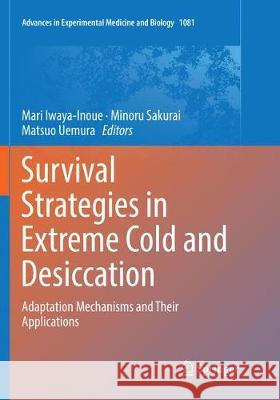Survival Strategies in Extreme Cold and Desiccation: Adaptation Mechanisms and Their Applications » książka
topmenu
Survival Strategies in Extreme Cold and Desiccation: Adaptation Mechanisms and Their Applications
ISBN-13: 9789811345913 / Angielski / Miękka / 2019 / 409 str.
Survival Strategies in Extreme Cold and Desiccation: Adaptation Mechanisms and Their Applications
ISBN-13: 9789811345913 / Angielski / Miękka / 2019 / 409 str.
cena 774,65 zł
(netto: 737,76 VAT: 5%)
Najniższa cena z 30 dni: 771,08 zł
(netto: 737,76 VAT: 5%)
Najniższa cena z 30 dni: 771,08 zł
Termin realizacji zamówienia:
ok. 20 dni roboczych.
ok. 20 dni roboczych.
Darmowa dostawa!
Kategorie:
Kategorie BISAC:
Wydawca:
Springer
Seria wydawnicza:
Język:
Angielski
ISBN-13:
9789811345913
Rok wydania:
2019
Dostępne języki:
Numer serii:
000253056
Ilość stron:
409
Oprawa:
Miękka











